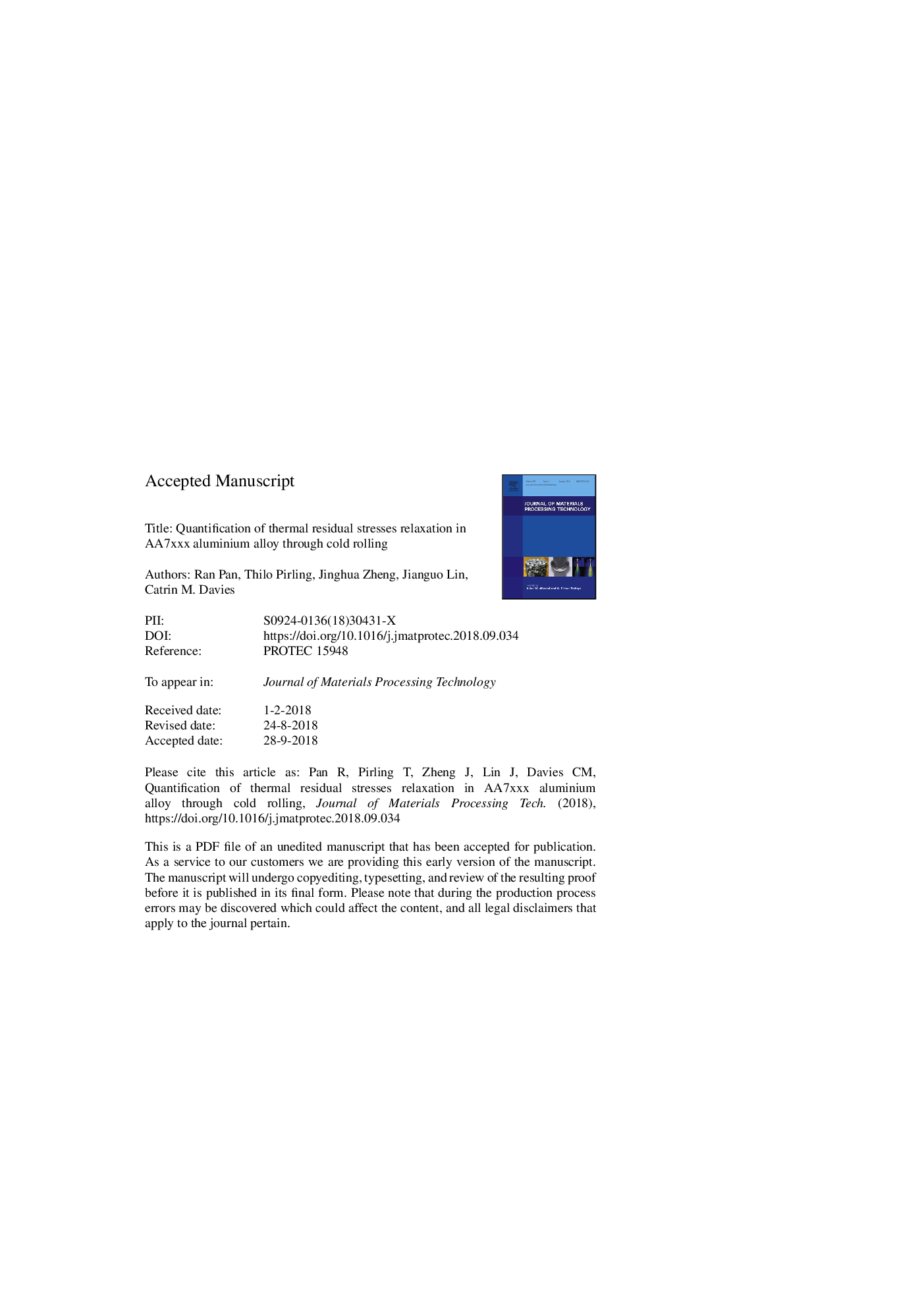| Article ID | Journal | Published Year | Pages | File Type |
|---|---|---|---|---|
| 11029894 | Journal of Materials Processing Technology | 2019 | 39 Pages |
Abstract
Residual stresses (RS) are often induced through quenching of aluminum alloys and present a potential risk of developing crack or distortion in subsequent manufacturing processes. Study of methods to minimise the RS in quenched components is of practical importance. In this paper, cold rolling (CR) has been carried out to remove the RS in quenched AA7050 blocks. The CR effect on relaxing RS in quenched AA7050 blocks has been evaluated via the neutron diffraction (ND), X-ray diffraction (XRD) and contour techniques. The results reveal that although CR transforms near-surface residual stresses from large compression to large tension along the rolling direction, it results in remarkable RS relief in the core part of the material. An integrated finite element model for RS evolution through the CR process was put forward and has been validated by the experimental results.
Related Topics
Physical Sciences and Engineering
Engineering
Industrial and Manufacturing Engineering
Authors
Ran Pan, Thilo Pirling, Jinghua Zheng, Jianguo Lin, Catrin M. Davies,
